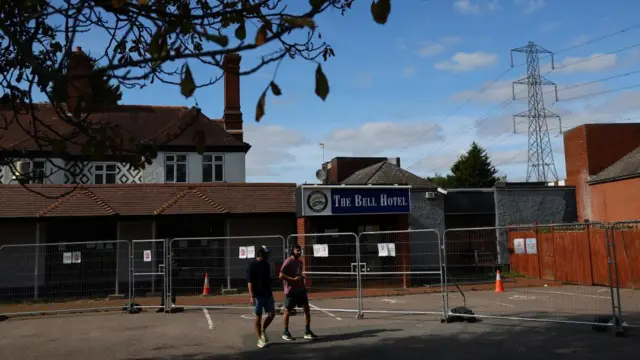Government must set out roadmap to end use of asylum hotels - former adviserpublished at 13:39 BST 29 August
A former adviser to Home Secretary Yvette Cooper says a ban on housing asylum seekers at the Bell Hotel in Epping could send a signal that if you protest "loudly enough for long enough then you could get an asylum hotel closed in your local area".
Danny Shaw, who is also a former BBC home affairs correspondent, says the Home Office will have contingency plans in place for what to do with the 138 men housed at the Bell Hotel.
But if the government loses, "they've lost a key legal case", he tells BBC's Today programme.
Shaw says the government has to set out its plan to stop use of asylum hotels by 2029.
"It has been pretty silent, it needs to set out a roadmap" including speeding up asylum decisions, and using more private rented accommodation or ex-military bases, he says.





